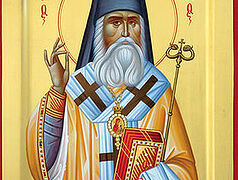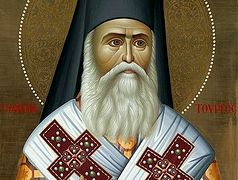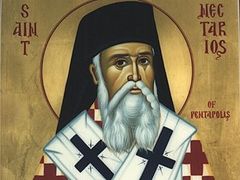The life of each of us is a path on which special road marks help us to not go astray: good thoughts that become guiding stars for us in moments of sorrows, despair and disappointments.
The wisdom and experience passed down by those who were able to acquire the invaluable wealth of the ability to turn everything for the good can help each of us, because even the smallest kind thought or a kind word can change much in our lives and the lives of those around us.
We offer a series of kind stories, teachings, and parables that can help you find your bearings in difficult moments; to accept everything with joy, and thank the bounteous and all-merciful God, our Provider and Creator, for everything that happens.
“To the Lord Jesus Christ in Heaven”
Finding himself alone in the capital of the ancient empire, Anastasios2 began to look for a job. He was offered a job as an apprentice for a watchmaker, but he refused, considering it a bad trade to fix what other people have broken, preferring instead hard work in a tobacco factory. He lived at that time in such poverty that one day, being constrained to the extreme, he decided to write a letter to the Lord outlining his needs—such was his childlike simplicity and spontaneity. “I will ask Him,” he thought, “for an apron, clothes, and shoes—because I have nothing, and I’m cold...” Armed with a pencil and paper, he wrote: “My Christ, I have no apron, no shoes. I ask you to send them to me. You know how much I love You." Then he folded the letter, sealed it, and put the following address on the envelope: “To the Lord Jesus Christ in Heaven,” and with that went to the post office. On the way, he met a merchant neighbor, and, as would be shown later, this meeting (as, indeed, everything that happens to us) was the work of God's Providence.
“Anastasios, where are you going?” the neighbor asked.
This unexpected question confused the boy, who muttered something in response and continued to hold the letter in his hand.
“Give me your letter, I'll send it,” said the neighbor.
He gave him the letter without hesitation. The merchant took it, put it in his pocket and went on. And Anastasios returned home joyful. Having already approached the mailbox, the merchant’s attention was drawn to the mysterious address, and unable to contain his curiosity, he opened the envelope and read the letter. Excited and alarmed, he thought that Anastassy was an exceptional child, and decided to immediately answer the letter, no doubt moved to do this by the One Who said, Inasmuch as ye have done it unto one of the least of these my brethren, ye have done it unto me (Mt. 25, 40). After scribbling a few touching words on a piece of paper and putting money into an envelope, the merchant sent this envelope to Anastasios. The Lord’s answer turned out to be so quick that our young saint came to work a day later and appeared before his master in new clothes. Seeing him so well dressed, the owner became furious, accused Anastasios of stealing money and beat him mercilessly. The boy protested, shouted that he was not guilty of anything and spoke the incredible truth that God had sent him money.
“I have never stolen in my life!”
However, such strong blows continued to fall on him that the same merchant neighbor, his benefactor, ran to the rescue. He told the boy’s cruel master about everything, thereby saving Anastasios from inhuman torments.
With such hard work did the young saint earn his bread; he provided himself with the opportunity to study and helped his family with money.
Good thoughts of hope in God and love for your neighbor:
Inasmuch as ye have done it unto one of the least of these my brethren, ye have done it unto me (Matt. 25:40)




